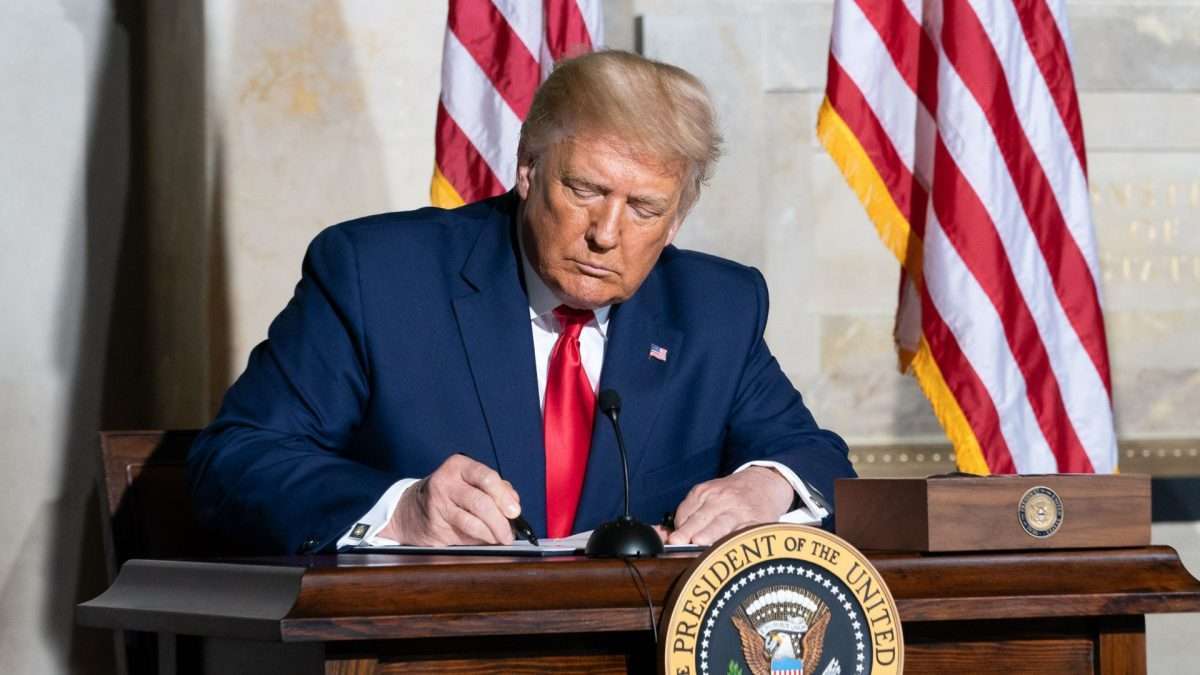Former Republican Senator Phil Gramm is sounding the alarm on President-elect Donald Trump’s proposed tariffs, warning that they will drive up inflation and reduce economic growth, wages, and income tax revenue.
In an op-ed for the Wall Street Journal, Gramm writes that the Trump tariffs could trigger a trade war that would have similar effects to the Hoover-era Smoot-Hawley tariff, which “reduced the volume of world trade by approximately 14 percent and deepened the Great Depression.”
The tariffs proposed by Trump, Gramm argues, would not only raise the cost of imported goods, but would also have enormous opportunity costs, forgoing higher-value, more productive domestic manufacturing for goods that are lower-margin and lower-value.
The Logic Behind the Trump Tariffs
During his 2024 presidential campaign, Trump proposed a baseline, across-the-board tariff of at least 10 percent on all imports and a special 60 percent tariff on goods imported from China. He also threatened tariffs of up to 75 percent on imports from Mexico, if the country fails to curb migrant flows into the United States from the southern border.
On the campaign trail in Michigan in September, Trump said that tariffs “are the greatest thing ever invented.” He has in the past referred to himself as a “Tariff Man.”
Trump views tariffs as both a protectionist and revenue-generating tool that will help pay down the $35 trillion national debt.
He also sees tariffs as a retaliatory tool — a “matching tax,” in his words” — against countries that charge high tariffs on U.S. goods.
In an interview with Fox Business’s Larry Kudlow in 2023, Trump criticized China for its well-established manipulation of its currency, the yuan, to make its exports more competitive, and India’s imposition of tariffs of 100 percent or more on U.S. goods, like Harley Davidson motorcycles.
“If they charge us, we charge them,” Trump said.
Old GOP vs. Trump’s GOP
Gramm, a former chair of the Senate Banking Committee and economics professor at Texas A&M, reflects the economic policy of the pre-Trump Republican Party. Economist Paul Krugman once called Gramm “the high priest of deregulation.”
Many critics have blamed Gramm’s zealous push for deregulation for the subprime mortgage crisis and the Great Recession, arguing that the 1999 Gramm-Leach-Bliley Act incentivized high-risk lending among large, consolidated financial institutions.
Time magazine listed Gramm as one of the 25 people to blame for the financial crisis.” The progressive magazine Mother Jones called him “Foreclosure Phil.”
Yet Gramm’s stance on the Trump tariffs represents the consensus among economists.
Former Treasury Secretary Larry Summers warned this week that Trump’s domestic and economic policies could cause inflation to skyrocket past the 9.1 percent high in the Biden administration.
And 68 percent of economists surveyed by the Wall Street Journal in October said they believe inflation would be higher in a Trump administration than under Harris.
Philip Marey, a senior U.S. strategist at Rabobank, told the Journal, “If the tariffs work the way economists think they work, I think people are in for a very nasty surprise.”
Globely News covers the game changers transforming the worlds of business, sports, politics, and technology. From AI and electric vehicles to the rise of China and the NFL's next stars, we've got you covered.



